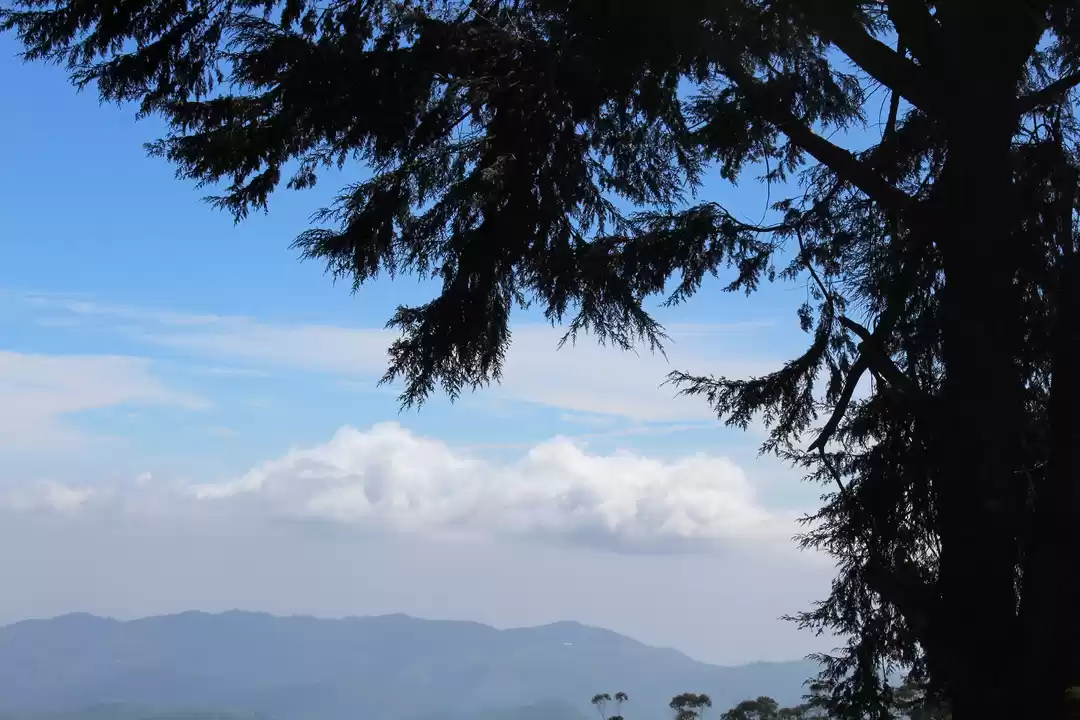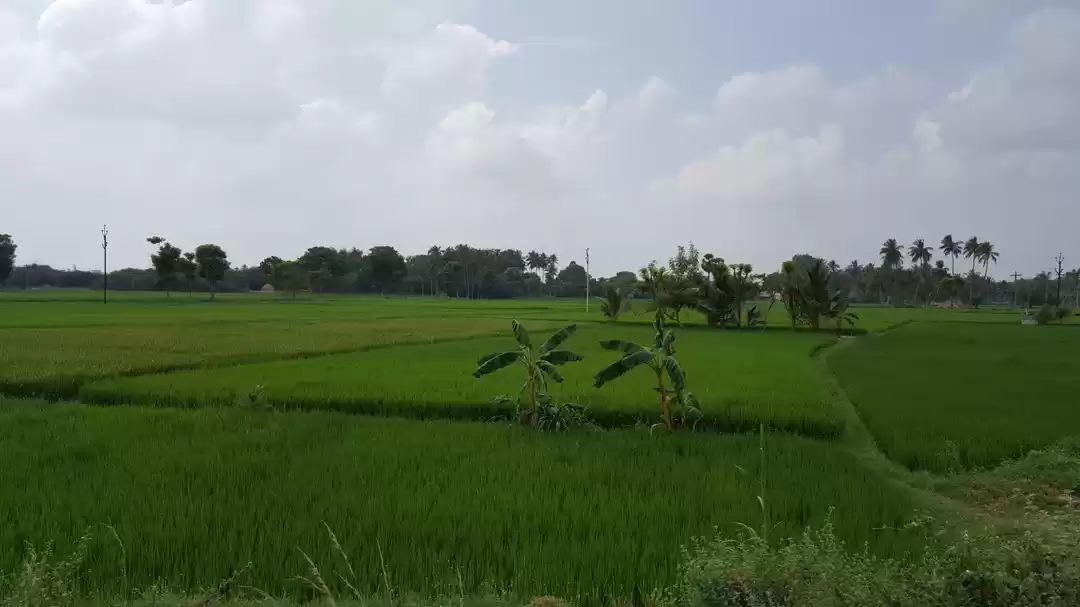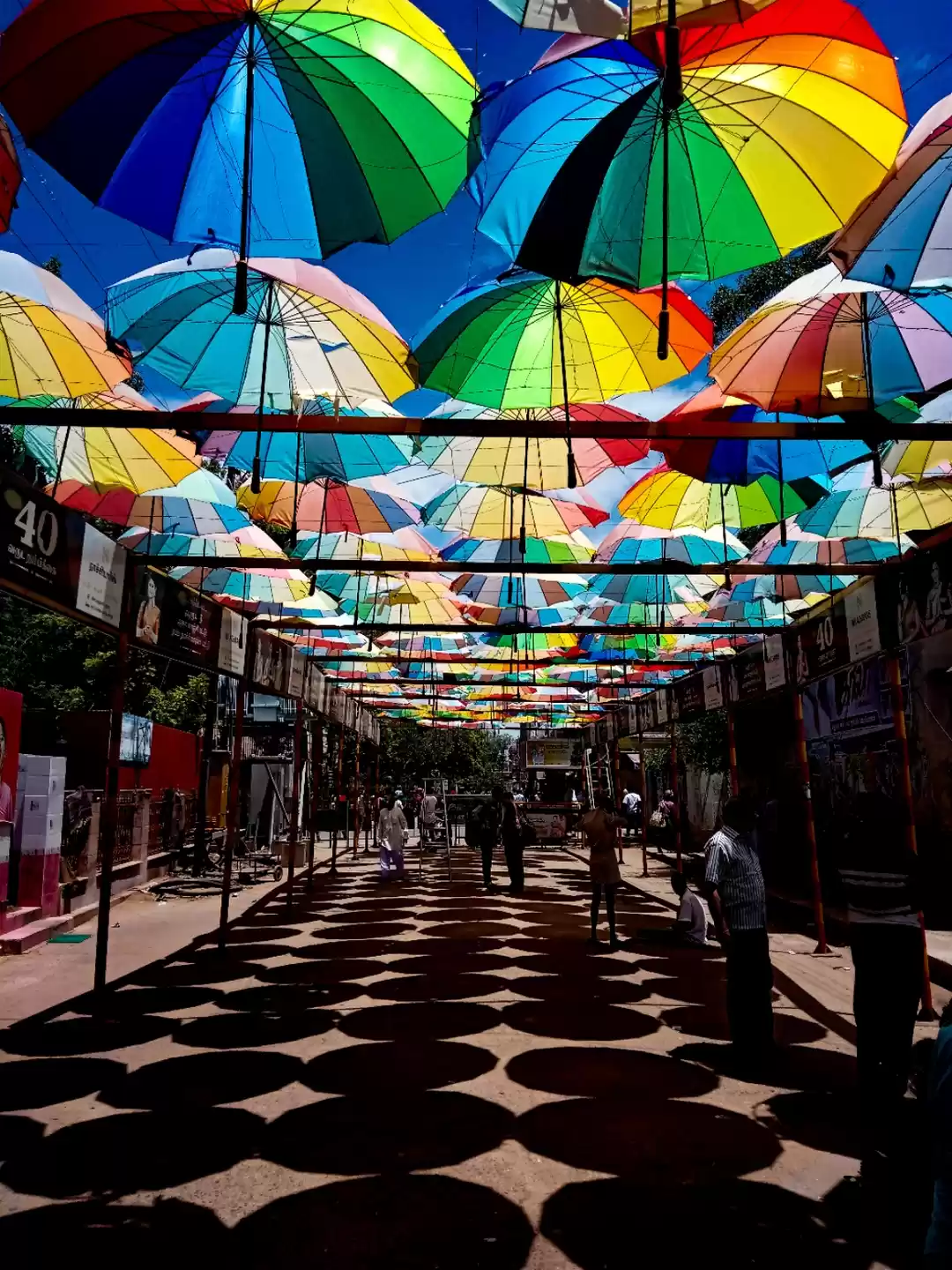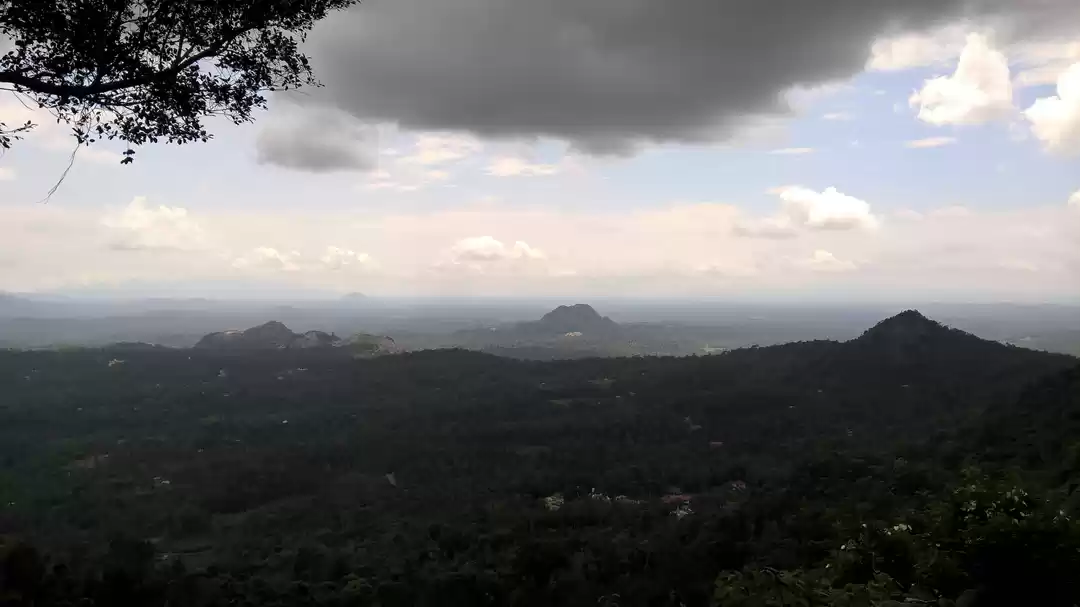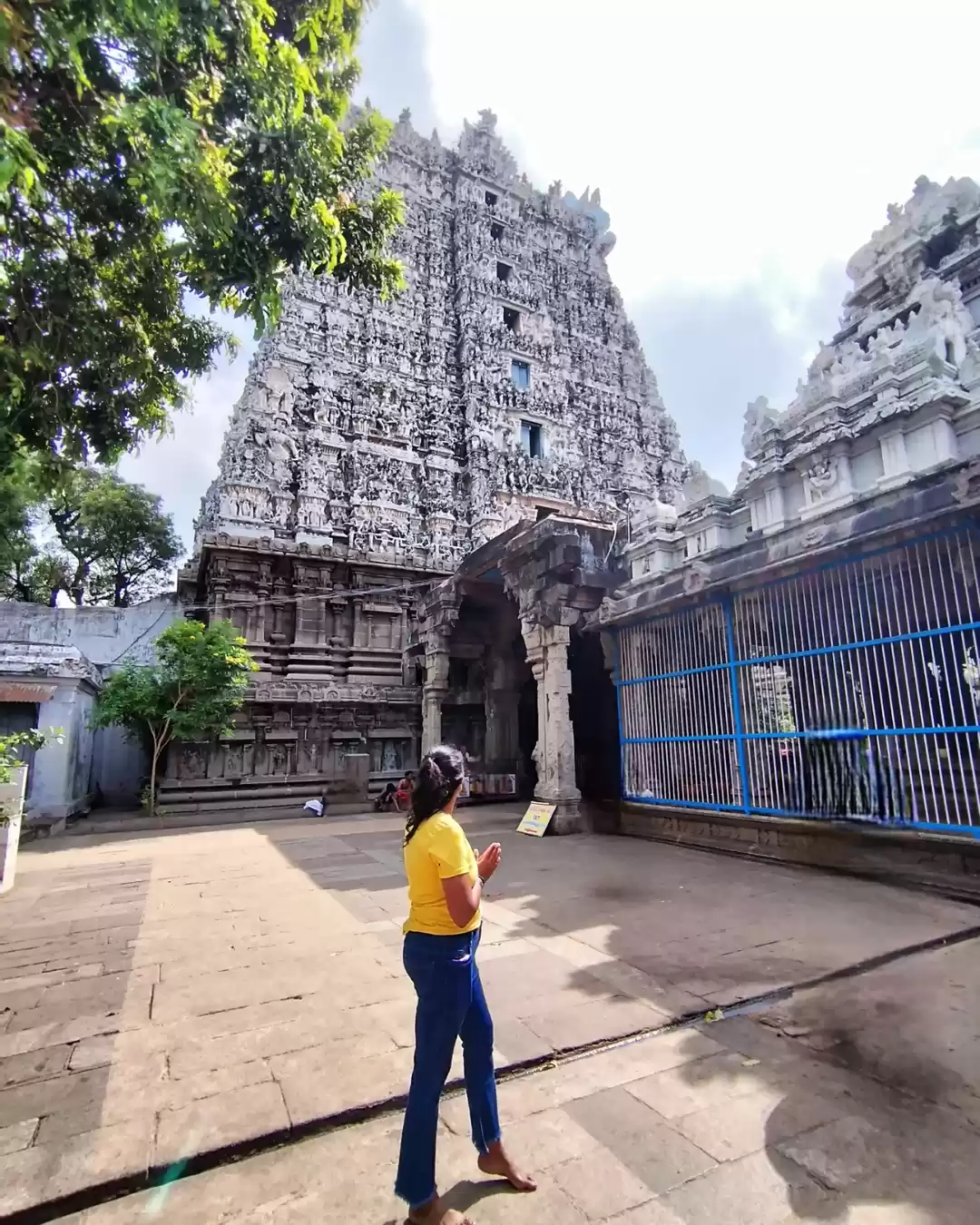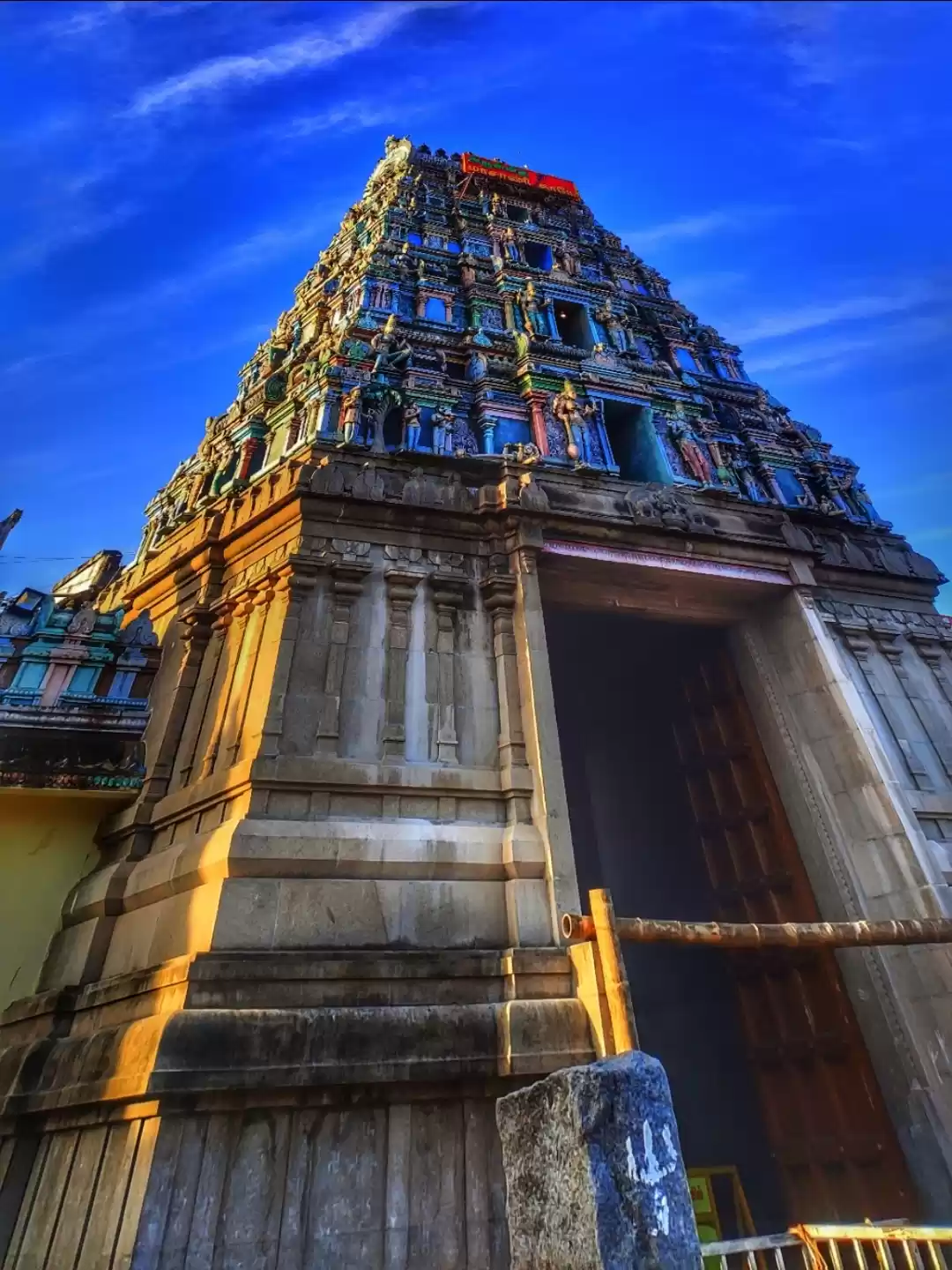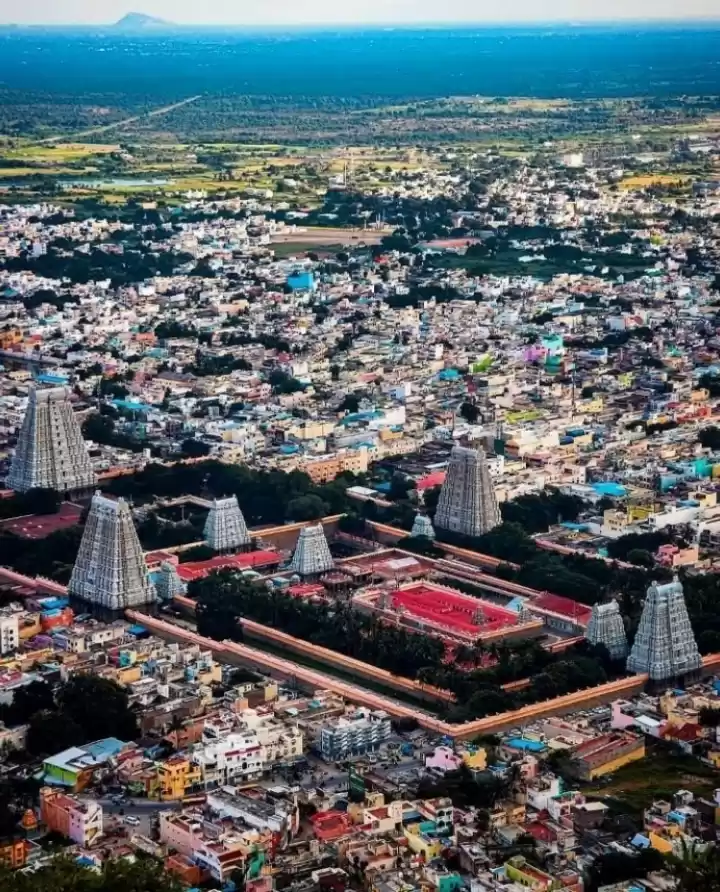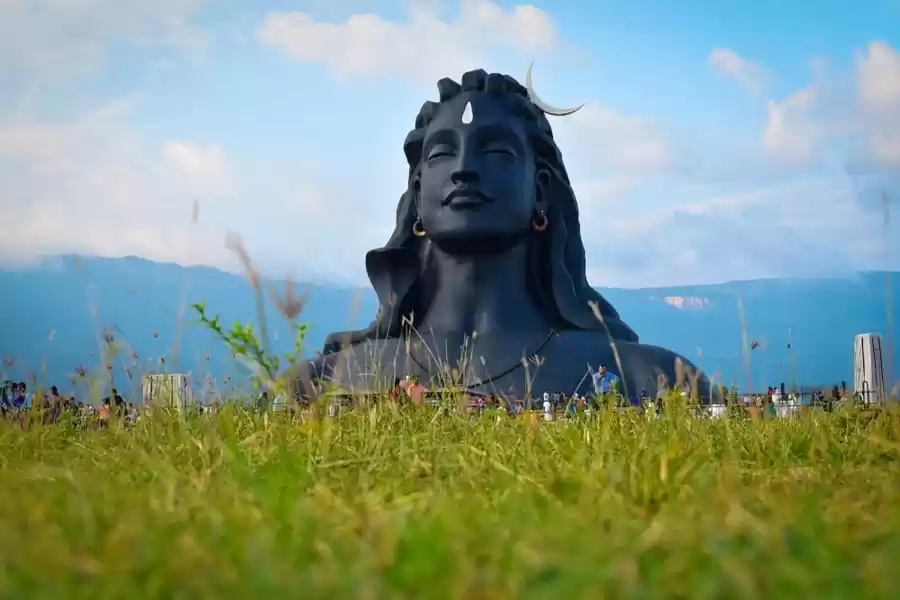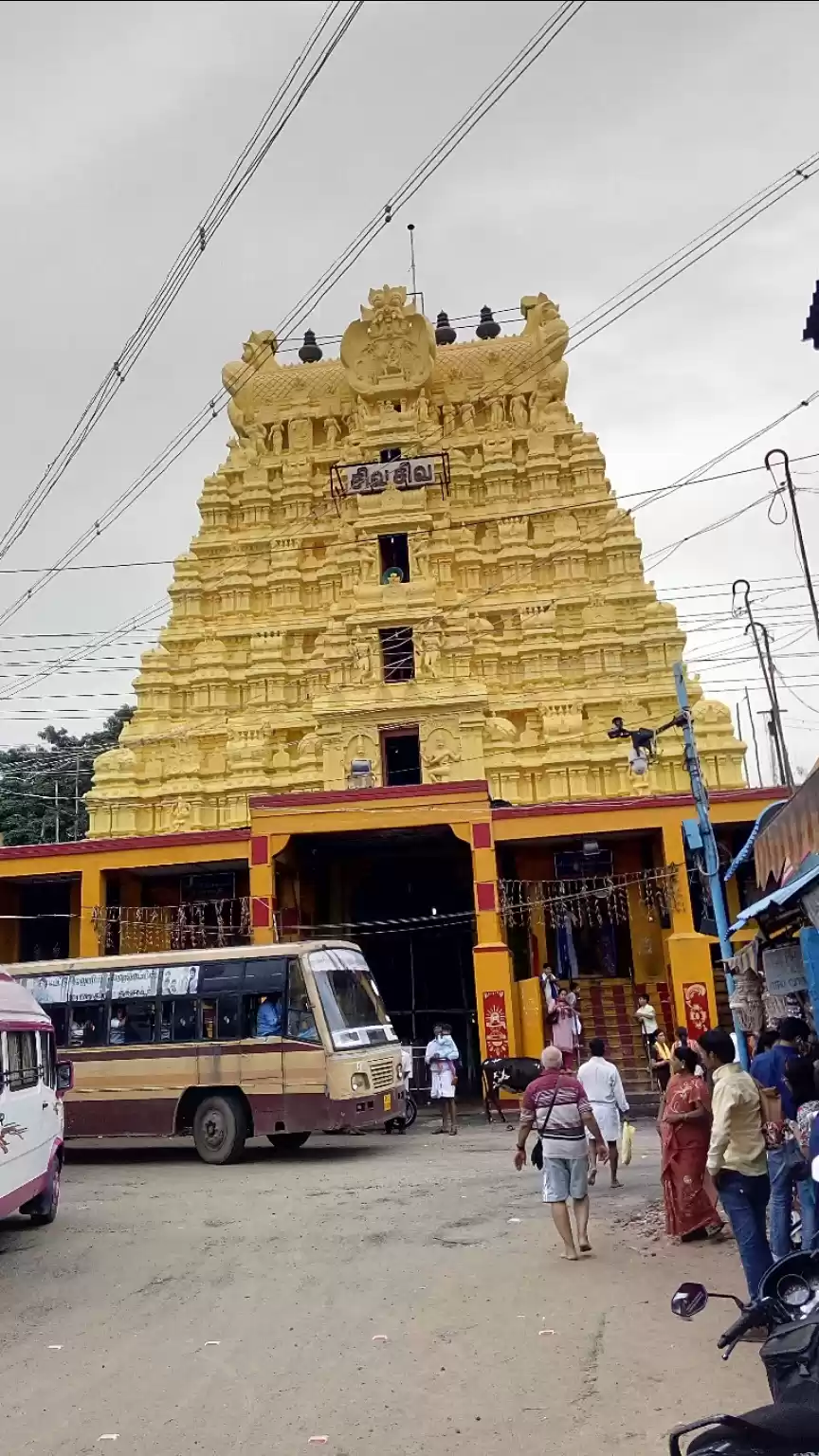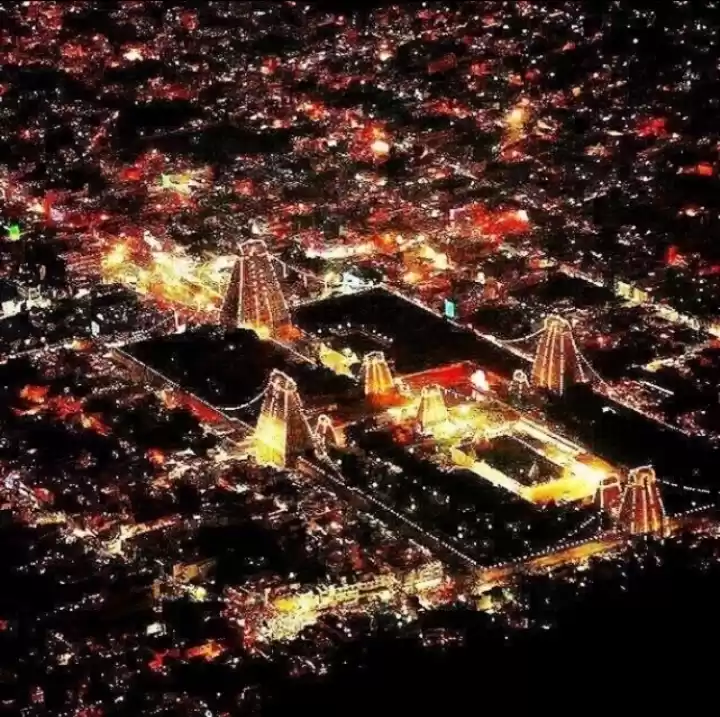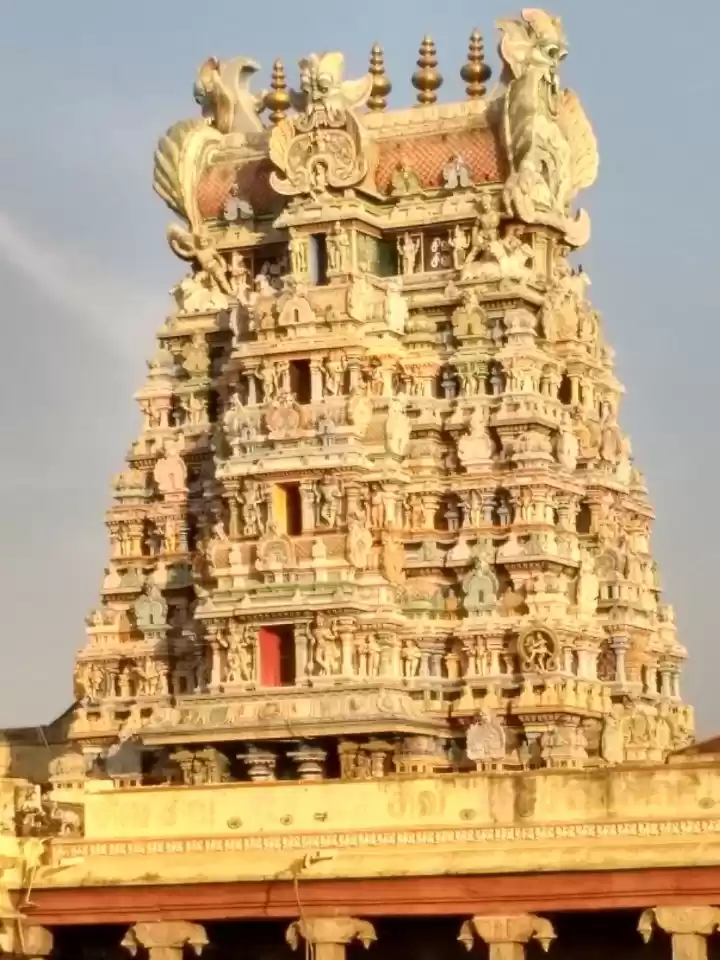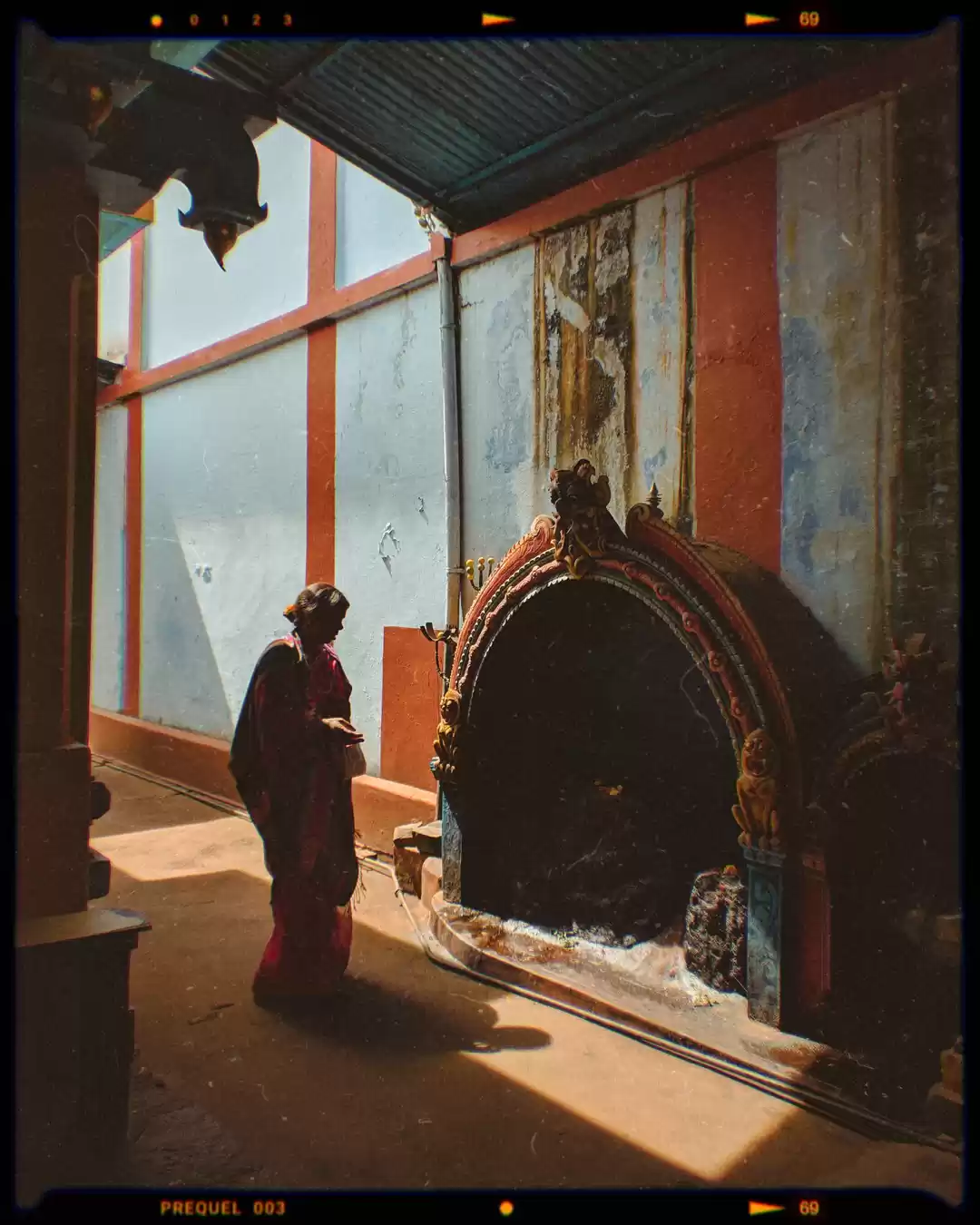Have you ever wondered what it would be like to visit a temple where the goddess lies in a reclining posture, surrounded by a serene and green landscape, and grants justice to her devotees?
If yes, then you should definitely visit the Masani Amman Temple in Coimbatore, Tamilnadu, India. This temple is unlike any other temple you have ever seen, and has a rich history, culture, and significance that will leave you awestruck. In this article, we will explore the various aspects of this temple, and guide you on how to visit and experience it.
History and Legend of Masani Amman Temple
The name Masani Amman comes from the Tamil words masani, meaning cremation ground, and amman, meaning mother. The goddess is also known as Shakti Devi, the supreme power and energy of the universe. The temple is located in a place called Anaimalai, which means elephant hill, and is believed to be the spot where Lord Rama cremated the demon king Ravana after killing him in the epic Ramayana.
There are many legends associated with this temple, and one of them is the story of the mango grove. According to this legend, there was once a king who had a beautiful mango grove near the temple. He was very fond of the mangoes, and did not allow anyone to pluck them. One day, a group of sages came to the grove and asked for some mangoes, but the king refused. The sages cursed the king and his mangoes, and the king died soon after. The mangoes turned into ashes, and the goddess appeared from the ashes to bless the sages and the people.
Another legend is the story of Lord Rama and his brother Lakshmana. When they were searching for Rama’s wife Sita, who was kidnapped by Ravana, they came to this place and prayed to the goddess. The goddess gave them a divine arrow, which Rama used to kill Ravana. She also told them that she would lie down in this place until Rama returned from his exile. However, Rama did not return, and the goddess is still waiting for him in a reclining posture.
A third legend is the story of the justice seekers. Many people who have been wronged or oppressed come to this temple and seek justice from the goddess. They grind red chilies into a paste and apply it on a stone image of the goddess, which represents their anger and pain. They also offer mud statues of their enemies or oppressors, and tie black threads on the trees around the temple, which symbolize their curses and vows. The goddess listens to their prayers and punishes the guilty and rewards the innocent.
These legends show the history and culture of this temple, and how it is connected to the ancient and sacred scriptures, such as the Ramayana. They also show the role of the goddess in resolving disputes and grievances, and how she is revered and feared by the people.
Distinctiveness and Significance of Masani Amman Temple
The most distinctive and striking feature of this temple is the reclining posture of the goddess. She is 15 feet long and 6 feet wide, and lies on her back, with her head facing north and her feet facing south. She has four hands, holding a skull, a snake, a drum, and a trident. She wears a crown, earrings, and a necklace, and has a third eye on her forehead. She is covered with a green sari, and has a lotus flower on her navel.

The reclining posture of the goddess is very rare and unique, and has a deep significance. It represents the goddess as the source and the end of all life, and as the mother of all creation. It also represents the goddess as the protector and the destroyer, and as the giver and the taker of justice. The goddess is also associated with the five elements of nature: earth, water, fire, air, and space, and with the cosmic energy that pervades everything.
The temple is also very distinctive in its location and atmosphere. It is situated in a valley, surrounded by hills, forests, and fields. The temple has a peaceful and calm environment, and is filled with the fragrance of flowers and incense. The temple also has a natural spring, which flows into a pond, where the devotees take a bath before entering the temple. The temple also has a huge banyan tree, which is said to be the abode of the goddess.
The temple is very significant for the devotees, who perform various rituals and offerings at the temple. Some of the rituals and offerings are:
Grinding red chilies: This is done by the justice seekers, who grind red chilies into a paste and apply it on a stone image of the goddess, which represents their anger and pain. They also offer mud statues of their enemies or oppressors, and tie black threads on the trees around the temple, which symbolize their curses and vows. The goddess listens to their prayers and punishes the guilty and rewards the innocent.
Offering mud statues: This is done by the childless couples, who offer mud statues of babies to the goddess, and pray for a child. The goddess blesses them with a child, and they return to the temple with their child and offer a thanksgiving.
Tying black threads: This is done by the people who suffer from diseases, especially skin diseases, who tie black threads on the trees around the temple, and pray for a cure. The goddess cures them of their diseases, and they untie the threads and offer a thanksgiving.
Offering prasad: This is done by the people who visit the temple, who offer prasad, or food, to the goddess, and receive her blessings. The prasad is usually rice mixed with turmeric and jaggery, which is said to have healing and auspicious properties. The prasad is also distributed to the other devotees, and is believed to fulfill their wishes and desires.
The temple is also very significant for women, who worship the goddess for various reasons.
The goddess is said to relieve women’s health issues, such as menstrual problems, infertility, and pregnancy complications. She is also said to protect women from evil forces, such as black magic, witchcraft, and evil eye. She is also said to empower women and grant them courage, wisdom, and prosperity.
How to Visit and Experience Masani Amman Temple
The temple is located in Anaimalai, which is about 24 km from Coimbatore and 10 km from Pollachi. The best way to reach the temple is by road, as there are frequent buses and taxis available from both Coimbatore and Pollachi. The nearest railway station is Coimbatore Junction, and the nearest airport is Coimbatore International Airport.
The best time to visit the temple is between October and March, when the weather is pleasant and the temple is decorated for various festivals and events. Some of the festivals and events celebrated at the temple are:

The 18-day festival:
This is the most important and grand festival of the temple, which is celebrated in the Tamil month of Aadi (July-August). The festival begins with the flag hoisting ceremony, and ends with the chariot procession. During the festival, the goddess is adorned with different ornaments and costumes, and is taken around the temple in various vehicles, such as a lion, a horse, a swan, and a snake. The festival also features cultural programs, such as music, dance, and drama, and attracts thousands of devotees from far and wide.
The Karthigai festival:
This is another important festival of the temple, which is celebrated in the Tamil month of Karthigai (November-December). The festival is dedicated to the goddess as the consort of Lord Shiva, and is celebrated with the lighting of lamps and candles. The highlight of the festival is the lighting of a huge bonfire, which symbolizes the destruction of evil and the renewal of life.
The Pongal festival:
This is a harvest festival, which is celebrated in the Tamil month of Thai (January-February). The festival is a thanksgiving to the goddess for the bounty of the crops and the prosperity of the people. The festival is celebrated with the cooking and offering of pongal, a sweet dish made of rice, milk, and jaggery, and the decoration of the temple with flowers, fruits, and grains.
Some of the tips and advice on how to make the most of the visit are:
1. Wear comfortable and modest clothes, as the temple is a sacred place and has a dress code. Avoid wearing shorts, skirts, sleeveless tops, or any revealing clothes.
2. Bring some water and snacks, as the temple is located in a remote area and there are not many shops or restaurants nearby. However, do not litter or waste any food or water, as the temple is also an eco-friendly place and has a cleanliness policy.
3. Avoid touching or disturbing the idols, the images, the trees, or the animals in the temple, as they are considered sacred and have a spiritual significance. Respect the customs and traditions of the temple, and follow the instructions of the priests and the staff.
4. Be patient and courteous, as the temple is a place of worship and devotion, and respect the sentiments and beliefs of the other devotees. Do not argue or fight with anyone, or cause any disturbance or inconvenience to anyone.
5. Enjoy the beauty and the serenity of the temple, and feel the presence and the power of the goddess. Pray to the goddess with faith and sincerity, and ask for her blessings and guidance. Thank her for the opportunity to visit and experience her temple, and for the grace and the mercy she bestows on you.
Masani Amman Temple is a unique and sacred destination in Coimbatore, Tamilnadu, India, where the goddess lies in a reclining posture and grants justice to her devotees.
The temple has a rich history, culture, and significance, and offers a variety of rituals and offerings to the goddess. The temple is also a beautiful and peaceful place, surrounded by nature and filled with positive energy. Visiting and experiencing this temple is a rewarding and enriching experience, and one that you will never forget.
If you are interested in visiting and experiencing this temple, or if you want to learn more about it, you can visit the official website of the temple, or check out some of the related articles on our website.
You can also share your feedback and comments with us, and let us know what you think of this article and this temple. We hope you enjoyed reading this article, and we hope you will visit and experience Masani Amman Temple soon. Thank you for choosing Tripoto, and happy travels!


